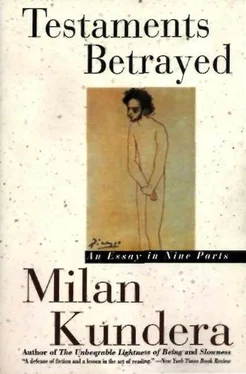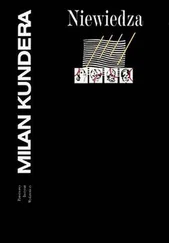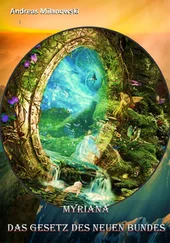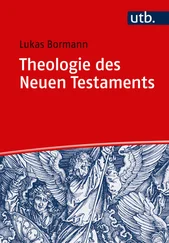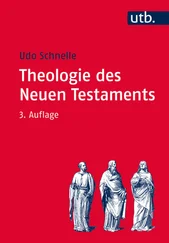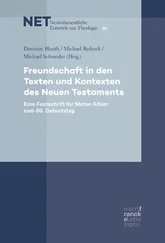Coexistence of Various Historical Periods Within a Novel
I think back to the time when I was beginning to write The Joke: from the start, and very spontaneously, I knew that through the character Jaroslav the novel would cast its gaze into the depths of the past (the past of folk art) and that the "I" of my character would be revealed in and by this gaze. In fact, all four protagonists are created that way: four personal communist universes grafted onto four European pasts: Ludvik: the communism that springs from the caustic Voltairean spirit; Jaroslav: communism as the desire to reconstruct the patriarchal past that is preserved in folklore; Kostka: communist Utopia grafted onto the Gospel; Helena: communism as the wellspring of enthusiasm in a homo sentimentalis. Each of these personal universes is caught at the moment of its dissolution: four forms of communism's disintegration; which also means the collapse of four ancient European ventures.
In The Joke, the past appears only as a facet of the characters' psyches, or in essayistic digressions; later, I wanted to put it directly on stage. In Life Is Elsewhere, I set the life of a young poet of our time against the backdrop of the whole history of European poetry so that his own footsteps should mingle with those of Rimbaud, of Keats, of Lermontov. And I went still further, in this mingling of different historical periods, in Immortality.
As a young writer, in Prague, I detested the word "generation," whose smell of the herd put me off. The first time I had the sense of being connected to others was later, in France, reading Terra Nostra by Carlos Fuentes. How was it possible that someone from another continent, so distant from me in itinerary and background, should be possessed by the same aesthetic obsession to bring different historical periods to coexist in a novel, an obsession that till then I had naively considered to be mine alone?
Impossible to grasp the nature of the terra nostra, the terra nostra of Mexico, without looking down into the well of the past. Not as a historian would do, in order to see the chronological unfolding of events, but in order to consider: what does the concentrated essence of the Mexican terra mean to a man? Fuentes grasped that essence in the form of a dream novel where various historical periods telescope into a kind of poetic and oneiric metahistory; he thus created something almost indescribable and, in any case, hitherto unknown to literature.
Most recently, I had the same sense of secret aesthetic kinship in Philippe Sollers' La Fete a Venise, that strange novel whose story occurs in our own time but is a stage setting for Watteau, Cezanne, Monet, Titian, Picasso, Stendhal-for the display of their remarks and their art.
And in the meantime came The Satanic Verses: the complicated identity of a Europeanized Indian; terra non nostra; terrae non nostrae; terrae perditae; to grasp that shredded identity, the novel explores it indifferent locations on the planet: in London, in Bombay, in a Pakistani village, and then in seventh-century Asia.
The coexistence of different periods sets the novelist a technical problem: how to link them without having the novel lose its unity?
Fuentes and Rushdie found fantastical solutions: in Fuentes, his characters move from one period to another as their own reincarnations. In Rushdie, it is the character of Gibreel Farishta who ensures that supratemporal connection by being transformed into the Archangel Gibreel, who in turn becomes a medium for Mahound (the novel's variant of Mohammed).
In Sollers' book and in mine, the link has nothing fantastical to it. In his, the paintings and the books seen and read by the characters serve as windows into the past. In mine, the past and the present are bridged by common themes and motifs.
Can our underground aesthetic kinship (unper-ceived and imperceivable) be explained by some influence on one another? No. By influences undergone in common? I cannot see what they might be. Or have we all breathed the same air of history? Has the history of the novel, by its own logic, set us all the same task?
The History of the Novel as Revenge on History Itself
History. Can we still draw on that obsolete authority? What I am about to say is a purely personal avowal: as a novelist, I have always felt myself to be within history, that is to say, partway along a road, in dialogue with those who preceded me and even perhaps (but less so) with those still to come. Of course, I am speaking of the history of the novel, not of some other history, and speaking of it such as I see it: it has nothing to do with Hegel's extrahuman reason; it is neither predetermined nor identical with the idea of progress; it is entirely human, made by men, by some men, and thus comparable to the development of an individual artist, who acts sometimes tritely and then surprisingly, sometimes with genius and then not, and who often misses opportunities.
Here I am making a declaration of involvement in the history of the novel, when all my novels breathe a hatred of history, of that hostile, inhuman force that- uninvited, unwanted-invades our lives from the outside and destroys them. Yet there is nothing inconsistent in this double attitude, because the history of humanity and the history of the novel are two very different things. The former is not man's to determine, it takes over like an alien force he cannot control, whereas the history of the novel (or of painting, of music) is born of man's freedom, of his wholly personal creations, of his own choices. The meaning of an art's history is opposed to the meaning of history itself. Because of its personal nature, the history of an art is a revenge by man against the impersonality of the history of humanity.
The personal nature of the history of the novel? But if it is to form a whole over the course of centuries, would not such a history need to be unified by some common and enduring-and thus by definition supra-personal-meaning? No. I believe that even this common meaning is still personal, human; for over the course of history the concept of this or that art (what is the novel?), as well as the meaning of its evolution (where has it come from and where is it going?), is constantly defined and redefined by each artist, by each new work. The meaning of the history of the novel is the very search for that meaning, its perpetual creation and re-creation, which always retroactively encompasses the whole past of the novel: Rabelais certainly never called his Gargantua-Pantagruel a novel. It wasn't a novel; it became one gradually as later novelists (Sterne, Diderot, Balzac, Flaubert, Vancura, Gombrowicz, Rushdie, Kis, Chamoiseau) took their inspiration from it, openly drew on it, thus integrating it into the history of the novel, or, rather, acknowledging it as the first building block in that history.
This said, the words "the end of history" have never stirred me to anguish or displeasure. "How sweet it would be to forget the monster that saps our brief lives as cement for its vain monuments. How sweet it would be to forget History!" (Life Is Elsewhere) If history is going to end (though I cannot imagine in concrete terms that "end" the philosophers love to talk about), then let it happen fast! But applied to art, that same phrase, "the end of history," strikes me with terror; that end I can imagine only too well, for most novels produced today stand outside the history of the novel: novelized confessions, novelized journalism, novelized score-settling, novelized autobiographies, novelized indiscretions, novelized denunciations, novelized political arguments, novelized deaths of husbands, novelized deaths of fathers, novelized deaths of mothers, novelized deflowerings, novelized child-births-novels ad infinitum, to the end of time, that say nothing new, have no aesthetic ambition, bring no change to our understanding of man or to novelistic form, are each one like the next, are completely consumable in the morning and completely discardable in the afternoon.
Читать дальше
